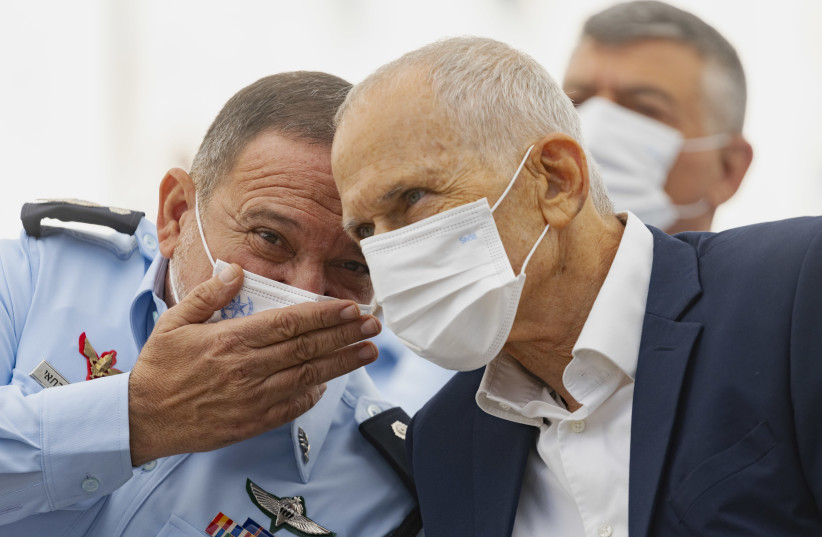"What is known as 'fake news' successfully infiltrated mainstream media fake news and caused damage that will take a long time to heal," Israel Police Commissioner Insp. Gen. Kobi Shabtai said on Tuesday regarding the accusations of police illegally spying on citizens, which first broke over a month ago.
Speaking at the closing ceremony of the Border Police Officer Training Course, Shabtai categorically denied the accusations, citing the outcome of Deputy Attorney General Amit Merari's probe, which announced on Monday that it had found no evidence of illegal activity on part of the police. He also spoke about the damage done to the police, saying that it "may lead to cutting off the branch we are sitting on" and calling it a "trend that endangers Israeli society."
Shabtai addressed the discrepancies in the police's response to the allegations when they first broke in late January and said that he had acted in good faith and that he was not aware at the time that unauthorized information was taken from Netanyahu trial key witness Shlomo Filber's cellphone. He admitted the mistake as soon as he became aware of it both to relevant law agencies and to the public, he said.
Shabtai added that the police was one of the most regulated and overseen bodies in Israel, and vowed that he would not allow it to become a "punching bag" for people with certain interests.
He did not specifically name anyone as being responsible for spreading the allegations but said "Someone must put some thought" into the easiness in which it happened.

Monday's announcement by the Merari probe served as a contradiction to the series of reports by the business newspaper Calcalist since mid-January, which claimed that some 26 public figures had their phones hacked illegally, including three former government ministry directors-general, prominent businessmen and media figures. Approval was given to hack into three of the 26 people, out of which only one was successful, the probe’s report said.
“The technological probe showed that there was no indication that the Israel Police used the Pegasus system without a judicial warrant to hack into the cellphones of any of the people on the list published in the media,” the report said. “Furthermore, based on probes into every case where the information extracted from the system allowed it, no indication of hacking attempts were found.”
The probe also investigated a separate hacking system that the police recently made operational. It did not say which system it was, but that in everything related to the other system, there also were no indications of hacks or attempted hacks of anyone on the list.

Technological experts from the Mossad and the Shin Bet (Israel Security Agency) assisted in the probe’s work. The probe analyzed all of the available information from police logs and received access to NSO’s internal system. It also examined the three cellphones of the former directors-general that were voluntarily handed over.
Other than Merari, the probe was headed by two former Shin Bet heads of branches, Tzafrir Katz, who headed its technology branch, and Eyal Dagan, who headed its investigations branch. It was commissioned on January 31.
The team stressed that it did not examine cases where the police did receive approval to use Pegasus. It said barring any new directives, it will continue to investigate the police’s use of hacking devices, including if people not on the list were hacked illegally by Pegasus or other technologies used by the police.
Attorney-General Gali Baharav-Miara on Monday night made her first public comments at the Israel Bar Association Conference.
The prosecution report published an hour earlier found that “there was no indication that cellphones of the people named in media reports were infected,” she said. “The findings speak for themselves.”
Public Security Minister Omer Bar Lev said the report was a “resounding acquittal” of the police.
“There are many people that need to bow their heads and apologize to Israel’s police officers and their families – more than 30,000 public servants whose reputations were dragged through the mud over every podium in recent weeks,” he wrote.
Bar Lev said he was committed to making sure the police acted properly but also to regain public trust.
“Together we will safeguard the democracy,” he wrote. “Together, we will defend the country.”
Yonah Jeremy Bob contributed to this report.
